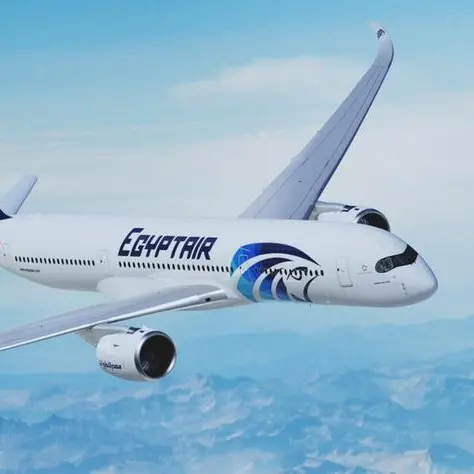By Sujata Rao
LONDON, Dec 8 (Reuters) - Russian companies planning a return to global bond markets in 2016 after a long absence may expect an eager welcome from fund managers who are starved of new emerging debt issues and reckon such deals will remain scarce.
A host of companies such as Lukoil, Aeroflot and Sistema are meeting investors in London on Tuesday, led by the Moscow Exchange and Alexei Kudrin, the influential former finance minister who is credited with building up Russia's hefty rainy day savings funds.
So far this year, Russian firms have raised less than $3 billion in debt overseas, a far cry from the $60 billion or so they issued annually before 2014. Bank of America Merrill Lynch expects it to pick up next year, but still be a comparatively light $10 billion to $15 billion.
The meagre tally is mainly down to Western sanctions that bar investors from buying new securities from borrowers seen linked to Moscow's role in the Ukraine crisis.
Economic recession and low global oil prices also mean that Russian firms need less money for expansion. Oil's continued fall this week after OPEC nations failed to agree a production ceiling on Friday suggests that a recovery may be some way off.
But the few non-sanctioned Russian companies that have ventured back into the debt market, such as Norilsk Nickel and Gazprom back in October, saw their bonds snapped up. Steel firm Evraz, said to be planning a $500 million deal soon, should see good demand, investors say.
"The market is open for the Russians," said Marcelo Assalin, head of emerging debt at NN Investment Partners. "There is money on the sidelines looking for good opportunities. If solid Russian companies come to market they will find buyers."
He said signs of better relations between Russia and the West, finding common cause against Islamic State fighters in Syria, meant investors were less worried than last year about the risk of sanctions being extended.
"It goes beyond the economic outlook or oil prices, it's more about the improvement in relations with the West."
Sberbank analyst Alexei Bulgakov predicts no more than $11 billion to $12 billion in new issuance in 2016, with companies that used to account for around 40 percent of issuance, such as Rosneft, Sberbank, VTB and Transneft, still under sanctions.
But with new debt scarce from emerging market companies outside Asia - due not only to the lull in Russia but also to an 80 percent drop in new issuance from crisis-hit Brazil - there will be money on the table for those that seek it.
Emerging companies have sold $215 billion worth of bonds this year, versus $345 billion in 2014, Bank of America Merrill Lynch estimates. That will rise only marginally in 2016 to $225 billion.
As bonds mature and coupons are paid, investors will have some $200 billion in hand to plough back into markets.
"There would be demand for new Russian corporate debt. If you look at corporate dollar debt issuance in emerging markets it's 40-45 percent down on the same time last year," said Steve Cook, co-head of emerging market fixed income at Pinebridge Investments.
FALL IN VOLUMES
Cook said the lack of new issuance had been compounded by the sharp fall in trading volumes on emerging bonds, making it harder for funds to buy debt in secondary markets. Both factors have supported prices for corporate debt, he added.
Russian companies' dollar bonds are among the world's best performing assets this year, having returned around 26 percent on JPMorgan's CEMBI index, which shows their yield premiums over U.S. Treasuries contracting more than 4 percentage points.
Some of this represents a recovery after drastic losses in 2014, but the sharp fall in the volume of debt has helped. Total outstanding Russian corporate debt has fallen by around $30 billion this year to $145 billion, a consequence of maturities and bond buybacks by companies that are not issuing new debt, according to investment bank Renaissance Capital.
Cook of Pinebridge says that given this year's tremendous rally, his allocation to Russia is around the same as its CEMBI weight.
He predicts investors will expect new deals to pay a bit of extra yield compared to older bonds and similar credits from other countries, suggesting a premium of 25 bps for an investment grade firm and 50-75 bps for a junk-rated credit.
Some say even such comparatively modest premiums may be unnecessary. Bulgakov of Sberbank says that since August, Russian bond prices have not reflected any extra premium for geo-politics. Gazprom raised one billion euros in early October at 4.625 percent, paying virtually nothing extra above its existing bonds.
With 2 billion euros in orders, Gazprom was able to tighten the yield by 35 bps from where it initially marketed the issue.
"Supply and demand have not been in balance for about a year as far as Russian bonds are concerned so I don't think they will have to pay much new issue premium. A bit to entice investors would be nice but 40-50 bps, probably we won't get that," said Claudia Calich, head of emerging debt at M&G Investments.
Moreover, according to Calich, Russian metrics compare favourably with many other emerging markets, especially Brazil.
"Russian companies have deleveraged considerably, they are cash flow positive," she said. "From a bondholders' perspective that's a good thing."
(Additional reporting by Alex Winning in Moscow; Editing by Peter Graff) ((sujata.rao@thomsonreuters.com; 44 20 7542 6176 ; Reuters Messaging: sujata.rao.thomsonreuters.com@thomsonreuters.net))
LONDON, Dec 8 (Reuters) - Russian companies planning a return to global bond markets in 2016 after a long absence may expect an eager welcome from fund managers who are starved of new emerging debt issues and reckon such deals will remain scarce.
A host of companies such as Lukoil, Aeroflot and Sistema are meeting investors in London on Tuesday, led by the Moscow Exchange and Alexei Kudrin, the influential former finance minister who is credited with building up Russia's hefty rainy day savings funds.
So far this year, Russian firms have raised less than $3 billion in debt overseas, a far cry from the $60 billion or so they issued annually before 2014. Bank of America Merrill Lynch expects it to pick up next year, but still be a comparatively light $10 billion to $15 billion.
The meagre tally is mainly down to Western sanctions that bar investors from buying new securities from borrowers seen linked to Moscow's role in the Ukraine crisis.
Economic recession and low global oil prices also mean that Russian firms need less money for expansion. Oil's continued fall this week after OPEC nations failed to agree a production ceiling on Friday suggests that a recovery may be some way off.
But the few non-sanctioned Russian companies that have ventured back into the debt market, such as Norilsk Nickel and Gazprom back in October, saw their bonds snapped up. Steel firm Evraz, said to be planning a $500 million deal soon, should see good demand, investors say.
"The market is open for the Russians," said Marcelo Assalin, head of emerging debt at NN Investment Partners. "There is money on the sidelines looking for good opportunities. If solid Russian companies come to market they will find buyers."
He said signs of better relations between Russia and the West, finding common cause against Islamic State fighters in Syria, meant investors were less worried than last year about the risk of sanctions being extended.
"It goes beyond the economic outlook or oil prices, it's more about the improvement in relations with the West."
Sberbank analyst Alexei Bulgakov predicts no more than $11 billion to $12 billion in new issuance in 2016, with companies that used to account for around 40 percent of issuance, such as Rosneft, Sberbank, VTB and Transneft, still under sanctions.
But with new debt scarce from emerging market companies outside Asia - due not only to the lull in Russia but also to an 80 percent drop in new issuance from crisis-hit Brazil - there will be money on the table for those that seek it.
Emerging companies have sold $215 billion worth of bonds this year, versus $345 billion in 2014, Bank of America Merrill Lynch estimates. That will rise only marginally in 2016 to $225 billion.
As bonds mature and coupons are paid, investors will have some $200 billion in hand to plough back into markets.
"There would be demand for new Russian corporate debt. If you look at corporate dollar debt issuance in emerging markets it's 40-45 percent down on the same time last year," said Steve Cook, co-head of emerging market fixed income at Pinebridge Investments.
FALL IN VOLUMES
Cook said the lack of new issuance had been compounded by the sharp fall in trading volumes on emerging bonds, making it harder for funds to buy debt in secondary markets. Both factors have supported prices for corporate debt, he added.
Russian companies' dollar bonds are among the world's best performing assets this year, having returned around 26 percent on JPMorgan's CEMBI index, which shows their yield premiums over U.S. Treasuries contracting more than 4 percentage points.
Some of this represents a recovery after drastic losses in 2014, but the sharp fall in the volume of debt has helped. Total outstanding Russian corporate debt has fallen by around $30 billion this year to $145 billion, a consequence of maturities and bond buybacks by companies that are not issuing new debt, according to investment bank Renaissance Capital.
Cook of Pinebridge says that given this year's tremendous rally, his allocation to Russia is around the same as its CEMBI weight.
He predicts investors will expect new deals to pay a bit of extra yield compared to older bonds and similar credits from other countries, suggesting a premium of 25 bps for an investment grade firm and 50-75 bps for a junk-rated credit.
Some say even such comparatively modest premiums may be unnecessary. Bulgakov of Sberbank says that since August, Russian bond prices have not reflected any extra premium for geo-politics. Gazprom raised one billion euros in early October at 4.625 percent, paying virtually nothing extra above its existing bonds.
With 2 billion euros in orders, Gazprom was able to tighten the yield by 35 bps from where it initially marketed the issue.
"Supply and demand have not been in balance for about a year as far as Russian bonds are concerned so I don't think they will have to pay much new issue premium. A bit to entice investors would be nice but 40-50 bps, probably we won't get that," said Claudia Calich, head of emerging debt at M&G Investments.
Moreover, according to Calich, Russian metrics compare favourably with many other emerging markets, especially Brazil.
"Russian companies have deleveraged considerably, they are cash flow positive," she said. "From a bondholders' perspective that's a good thing."
(Additional reporting by Alex Winning in Moscow; Editing by Peter Graff) ((sujata.rao@thomsonreuters.com; 44 20 7542 6176 ; Reuters Messaging: sujata.rao.thomsonreuters.com@thomsonreuters.net))




















